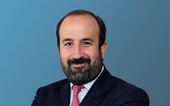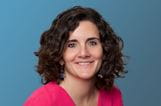Finding paths to safety for Afghans
Related people
Headlines in this article
Related news and insights
Publications: 30 November 2023
Publications: 08 September 2023
Street Child invests in the future as our charity partnership draws to a close
Publications: 14 December 2022
Publications: 08 December 2022
An international team of some 40 A&O lawyers has taken on over 50 visa applications for Afghans seeking asylum in the U.S.

When President Biden announced the withdrawal of U.S. and allied armed forces from Afghanistan beginning on 1 May 2021, A&O’s existing programme of work to support U.S. asylum applications moved up a gear.
Expanding out from the U.S. offices, a growing international team of A&O lawyers has been collaborating with a network of other law firms and NGOs to create paths to safety for Afghans.
“We started to see the situation in Afghanistan worsen from May onwards and realised the potential for a real crisis,” says U.S. Pro Bono Manager Jennifer White Callaghan. “So we began to escalate our efforts in the U.S. to find more lawyers who could review and finalise documentation for visa applications under the U.S. Government’s Special Immigrant Visa (SIV) programme.”
Introduced in 2006, SIVs provide a route for Afghans who have worked for or on behalf of the U.S. to resettle in the country. “Having an approved application was one of the few ways to get on an evacuation flight,” Jennifer says, “but even the process of passing through checkpoints and airport security gates became more dangerous once the Taliban entered Kabul in August – especially with non-secured areas of the airport full of crowds, with no access to food, shelter or bathroom facilities.”
A call for international support
As the need became increasingly acute, a call went out to A&O’s network to bring in more volunteers to help prepare applications for SIVs and other U.S. visa categories.
An international team of approximately 40 A&O lawyers has now taken on over 50 clients since May. “Each case is complex and completely different, which means they can often take years to reach a final decision,” says New York associate John David Thompson, who has worked on two cases so far. “The asylum law expertise of our partner NGO, the International Refugee Assistance Project (IRAP), has been vital because often there are different options available to an individual, so it’s a case of knowing where their best chance of success lies.”
So far, A&O’s team has succeeded in arranging visas and a route out of the country for more than a dozen families. “But there’s so much more to do,” John David says. “Anyone who assisted the U.S. or the previous Afghan Government, along with their families, may be a target of the Taliban. Others are at risk too, like students, activists, human rights lawyers and more.”
Many routes out of the country are now unavailable, Jennifer adds. “Even if our clients manage to get on a flight, most flights now terminate outside the U.S. in countries where additional visa applications are often required, so we’re working with our global network to find solutions for as many people as we can.”
Madrid provides a vital safety route
One such example was Madrid partners Jimena Urretavizcaya and Antonio Vázquez Guillén and counsel Borja Contreras helping to find a route to safety for a human rights lawyer.
“Jennifer had told us about an Afghan lawyer hiding in Kabul with her children, having received death threats from the Taliban,” Borja says. “She was due to be awarded a human rights prize in Madrid, making her eligible for a temporary visa in Spain which would give her and her family a safe environment while applying for a permanent visa for the U.S.
“With no Spanish embassies in Afghanistan, we had to analyse different options for the family’s extraction. We considered their best option to be a route to Athens, then Spain. We tracked their progress along the journey, feeling a deep sense of responsibility as we knew this was really their only hope. When they arrived in Athens, we were in direct contact with the Ministry of Foreign Affairs and the Spanish Embassy there and worked through all the proceedings required to obtain a temporary Spanish visa for them.
“We picked up our client and her family from Madrid airport late at night and accompanied them to their hotel. We gave them some presents so they didn’t feel like foreigners in Spain. I will never forget the look in the children’s eyes and the hug our client gave Jimena when we first met. It was amazing,” Borja says.
“I had only joined A&O a few months before, but wanted to do this pro bono work because, like many of us, I had watched news reports from Afghanistan and wanted to help. This has made me realize the huge impact we can have on people – it has been one of the best experiences of my career and I am so proud that our job has allowed our client and her family to have a second chance.”
International collaboration
Internationally, a wider effort has also been mobilised. In France, A&O is one of 12 firms* working with human rights organisation Safe Passage International France on resettlement for Afghans with family reunification and humanitarian visas. Plans are also underway for A&O to join firms in the Netherlands, alongside the Dutch Council of Refugees.
Similarly in the UK, A&O is one of 14 firms* working with Safe Passage International and Refugee Legal Support on a new Afghan Pro Bono Initiative, set up to respond to the urgent need for legal representation for Afghans seeking protection and reunion with family members in the UK. The 14 law firms are jointly funding the salary of two immigration lawyers who will train and supervise volunteer lawyers from the firms to significantly increase casework capacity.
Both in France and the UK, the casework will also help to feed into strategic efforts to make existing 'safe' routes to protection – such as refugee family reunion and resettlement schemes – more accessible and effective, as well as to advocate for their expansion and defend the fundamental rights of people on the move by influencing policy and decision making.
“The desire of firms and NGOs to collaborate on this work is one of the positive things we’ve seen during the crisis,” Jennifer says, “and collaboration is absolutely key in thinking through the logistics of each Afghan applicant and their family.”
As lawyers, we can do a lot to help
“Sadly, U.S. immigration laws exclude more people than they allow,” says New York associate Brendan Holman, who has also worked on several cases. “U.S. visas generally include only the individual’s spouse and children, yet applicants tend to live with extended family members. The process too often pits personal safety against personal relationships – a fraught decision exacerbated by the narrow window of opportunity.”
There is also the significant challenge of acclimating Afghan immigrants to their new lives. “The cultural shock presents a whole different set of obstacles – at the same time that we’re exploring longer-term immigration options, we’re also working with local and national NGOs to navigate employment status and relocation options,” Brendan says.
“Many people watch these crises unfold and feel helpless or desensitized. However, the legal community remains uniquely positioned to help, and we know that through collaboration and creativity we can have a dramatic impact on families otherwise neglected by the U.S. immigration system.”
* Law firms within the Afghan Pro Bono Initiative: A&O; Akin Gump; Ashurst; Cleary Gottlieb Steen & Hamilton; Clyde & Co; Debevoise & Plimpton; Eversheds Sutherland (International); Hogan Lovells; Gibson, Dunn & Crutcher; Mayer Brown; Orrick, Herrington & Sutcliffe (UK); Reed Smith; Ropes & Gray; Skadden Arps, Slate, Meagher & Flom (UK).
* Law firms collaborating on the France Afghan pro bono programme: A&O; Clyde & Co; Dechert; DLA Piper; Hogan Lovells; Mayer Brown; Orrick, Herrington & Sutcliffe; Reed Smith; Shearman & Sterling; Skadden Arps, Slate, Meagher & Flom; Squire Patton Boggs; White & Case.




